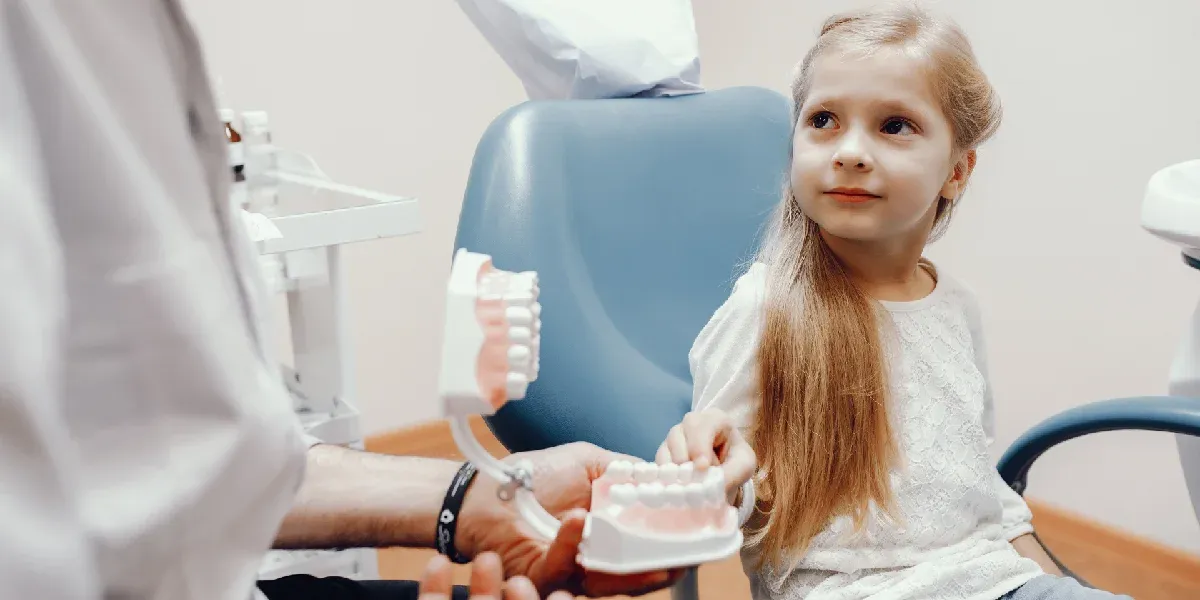
Healthy Eating Habits for Strong Teeth
Taking care of our teeth is more than just brushing and flossing – what we eat matters, too. Choosing healthy foods makes a big difference. It helps keep our teeth strong and gums healthy, making our smiles happier.
The things we eat directly affect our teeth and gums. Imagine our body as a building; a good diet is like the strong foundation that keeps it standing. Important things our teeth need, like calcium, phosphorus, and vitamin D, come from our food. Calcium strengthens our teeth; phosphorus helps the enamel (the protective layer) on our teeth, and vitamin D ensures our teeth use calcium properly.
But be careful! Eating too many sugary or acidic things can cause problems. Bacteria in our mouths love sugar and make acids that can hurt our teeth over time. So, it's wise to be mindful of what we eat.
Remember, while brushing and flossing are important, they work even better when we eat good stuff. It's like having a team of superheroes for our teeth! So, let's make good daily food choices to keep our teeth strong and happy.
Nutrition and Dental Health: The Fundamental Connection
Nutrition plays a pivotal role in maintaining strong teeth and gums. Let's explore the relationship between nutrition and dental health through a statistical lens.
- Calcium and Tooth Strength:
Statistically, a calcium deficiency may cause tooth decay and poor oral health. A diet low in calcium may increase the risk of developing periodontal diseases.
- Phosphorus and Tooth Enamel:
Please pay attention to the nutrients our bodies need to ensure optimal tooth development. Phosphorus plays a vital role in this process. Research indicates that phosphorus deficiency may compromise tooth enamel. A study highlighted the importance of phosphorus in preventing enamel erosion and maintaining dental health.
- Vitamin D and Calcium Absorption:
The American Journal of Clinical Nutrition reports that adequate vitamin D levels enhance the absorption of calcium, which is crucial for developing strong teeth. Statistics show a correlation between vitamin D deficiency and an increased risk of periodontal disease.
- Vitamin C and Gum Health:
Not getting enough vitamin C is linked to gum disease. A study found a connection between low levels of vitamin C and a higher occurrence of periodontitis.
- Omega-3 Fatty Acids and Anti-Inflammatory Effects:
Statistics from the American Heart Association underline the potential of omega-3 fatty acids in reducing inflammation, which can positively impact gum health.
- Sugar Consumption and Tooth Decay:
The World Health Organization (WHO) highlights the global impact of sugar on oral health, with statistics showing a direct relationship between sugar consumption and tooth decay. According to the CDC, dental caries (cavities) are among the most prevalent chronic diseases, and reducing sugar intake is a crucial preventive measure.
"Sugar is like a party for bacteria that can cause cavities. Pick your snacks wisely, and your teeth will be super grateful with a 0% cavity rate."
- Hydration and Saliva Production:
The Journal of Dental Research emphasizes the role of saliva in maintaining oral health, including its ability to neutralize acids and prevent tooth decay. Statistically, populations with access to fluoridated water exhibit lower dental caries rates, as the World Dental Federation reported.
Nurturing Healthy Eating Habits in Children: A Guide for Parents
Fostering good dietary habits in children is a fundamental step toward a lifetime of health and well-being, and pediatric dentists play a crucial role in supporting this journey. As parents, it's essential to guide and encourage healthy choices that contribute to their physical and cognitive development. Here are practical tips to nurture positive eating habits in children:
- Be a Positive Role Model
Your role as a parent extends beyond verbal guidance. Children are keen observers, and they learn by imitating the behaviors of those around them. Set a positive example by embracing a balanced and nutritious diet yourself. Share meals as a family, making the dining experience enjoyable. Children who witness your enthusiasm for healthy foods are likelier to adopt similar preferences.

- Introduce a Variety of Foods
Introducing children to various foods early on can broaden their taste buds and nutritional intake. Incorporate a good mix of healthy meal options into their meals. Be creative with food presentations, using vibrant colors and appealing arrangements to stimulate the dining experience visually.
- Make Healthy Foods Fun
Transform healthy eating into an exciting adventure. Create visually appealing meals, use colorful fruits and vegetables, and involve children in the preparation process to instill a positive association with nutritious foods. Get creative in the kitchen by arranging fruits and vegetables into fun shapes or constructing colorful, nutrient-rich meals. Involve children in age-appropriate cooking activities, allowing them to contribute to meal preparation.
- Set Regular Meal Times
Set well-ordered meal and snack times to establish a structured eating routine. It helps regulate hunger and encourages mindful eating habits, reducing the likelihood of excessive snacking. Children who know that meals occur at specific times are less likely to engage in impulsive snacking, promoting mindful eating habits that contribute to better overall health.
- Limit Processed and Sugary Foods
Gradually replace processed snacks with healthier alternatives like fresh fruits, nuts, or yogurt. Limiting their processed or sugar intake helps instill awareness of the importance of whole, nutrient-dense foods.
- Educate About Nutrients
Teaching children about the nutrients in food empowers them to make informed choices. Explain the roles of essential nutrients like vitamins, minerals, carbohydrates, proteins, and fats in supporting their growth and well-being. Use age-appropriate resources, such as books or interactive games, to make learning about nutrition engaging.

- Involve Children in Grocery Shopping
Take children with you when grocery shopping. Allow them to choose fruits, vegetables, and other healthy options. Educate them about food choices and make them feel involved in decision-making. Transforming grocery shopping into a family activity can be an educational and enjoyable experience. Discuss the importance of each food item, emphasizing its unique nutritional benefits.
- Encourage Hydration
Limit the availability of sugary beverages, making water the primary source of hydration. Educate children about the role of water in supporting bodily functions, including digestion and concentration. Consider having a designated water bottle for each child, making it easily accessible and encouraging them to drink water regularly.
- Promote Mindful Eating
Guide children in recognizing their hunger and fullness cues. Discourage distractions such as screens during meals, creating a focused and enjoyable eating environment.
- Celebrate Special Occasions Mindfully
While celebrations may include sweets and treats, emphasize moderation and balance. Communicate that enjoying occasional treats is part of a healthy approach to eating. Encourage children to savor and appreciate these particular foods in the context of a well-rounded diet.
Final Thoughts
In building powerful teeth, what we eat matters a lot. For instance, choosing foods rich in calcium, like dairy and leafy greens, helps make our teeth strong. Don't forget phosphorus from foods like meat and nuts, as they protect our tooth enamel. Vitamins, especially vitamin D, are like little helpers, ensuring calcium does its job. Keep things colorful by eating fruits and veggies and drinking lots of water.
Remember to see the dentist regularly for a checkup. So, don't forget to enjoy tasty and healthy foods to keep your smiles shining bright. Also, make an effort to encourage your children to adopt a well-balanced diet to maintain dental health.
Contact your kids' dentist in Stockton, Dr. Sajjad Rizvi, D.D.S., at Happy Kids Dental to learn more about healthy eating habits for strong teeth.
Resource:
*This media/content or any other on this website does not prescribe, recommend, or prevent any treatment or procedure. Therefore, we highly recommend that you get the advice of a qualified dentist or other medical practitioners regarding your specific dental condition*
Subscribe To Our Newsletter
Get Updates And Learn From The Best


